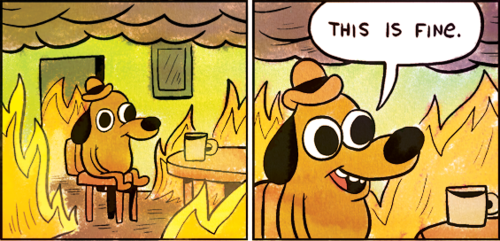
“Memes in a Digital World: Reconciling with a Conceptual Troublemaker."
Although in my eye’s memes are a simple facet somewhat buried in the complex digital world, I am fascinated by Dawkins’ original definition and understanding of what a meme, at its core, really is. Dawkins uses an analogy between the genes in the human body and memes on the internet. Genes and memes play similar parts in these two elaborate systems . Once reading this, I could not help but notice the other connections these two systems have. The word “virus” came straight to mind: a virus has an almost identical role in a human’s immune system as on the internet. As my knowledge of the internet expands and my research continues, I expect to find even more biological explanations of digital concepts. Meme critiques challenge this analogy by claiming it is reductive, materialistic, and ineffective, which I disagree with. I think this analogy is extraordinarily successful and it gives life and culture to this internet world. Expanding on this point, memes bring an incredible amount of cultural information to diverse groups of people. With simple tweaks and adjustments, a meme can represent all sorts of voices, experiences, opinions and values. I have always thought as memes as a meek source for pure entertainment, but I was wrong. It is fascinating to consider what memes thrive in what demographics/ psychographics and why others fail. When reflecting on my own experiences, I immediately think back to the trending memes during the presidential election this fall. On my Instagram, I follow people with mainly the same political views as me, and hence, the memes that I would see essentially poked fun at the candidate I was rooting against. Up until this reading, I never considered the reason as to why these memes stayed afloat. I am sure these memes were filtered out of the feeds of so many other American voters who had differing views than my own. The people who you follow and the algorithm that you set on social media dictates the outcome of media and memes that you view every day, giving you a fitting internet culture , you belong in. A question that I still have after diving into this fascinating article is, what really were memes before digital cultures? If the definition revolves around the internet, I do not understand what a meme could have been before the internet. My best guess is that a meme was referred to as s tactic of mass communication, but this strays quite far from the modern definition.
“What Does Net Art Mean in the Post-Digital Age?”
At this day in age, so many people have access to programs like adobe photoshop, affinity designer, and all sorts of programs that aid creators to produce visual content they can post on the internet. Creating interesting visuals on a website is one thing but understanding how a website functions behind the scenes is a niche skill so many people lack . I feel empowered to be able to understand some of the coding tactics and hyperlink connectivity that make navigating the internet possible. This article mentions that understanding this more complex “behind the scene connectivity ” will change the way artist make work in this digital world. I not only agree with this but consider myself one of these artists. For me, I am gaining the skill set to not only make interesting visuals, but string them together to make interactive , meaningful stories. Storytelling is a theme and skill that comes up often in life and being able to contribute to it in a digital context is enlightening and quite powerful.

Back to Exploratory Writing landing page here
Back to the index